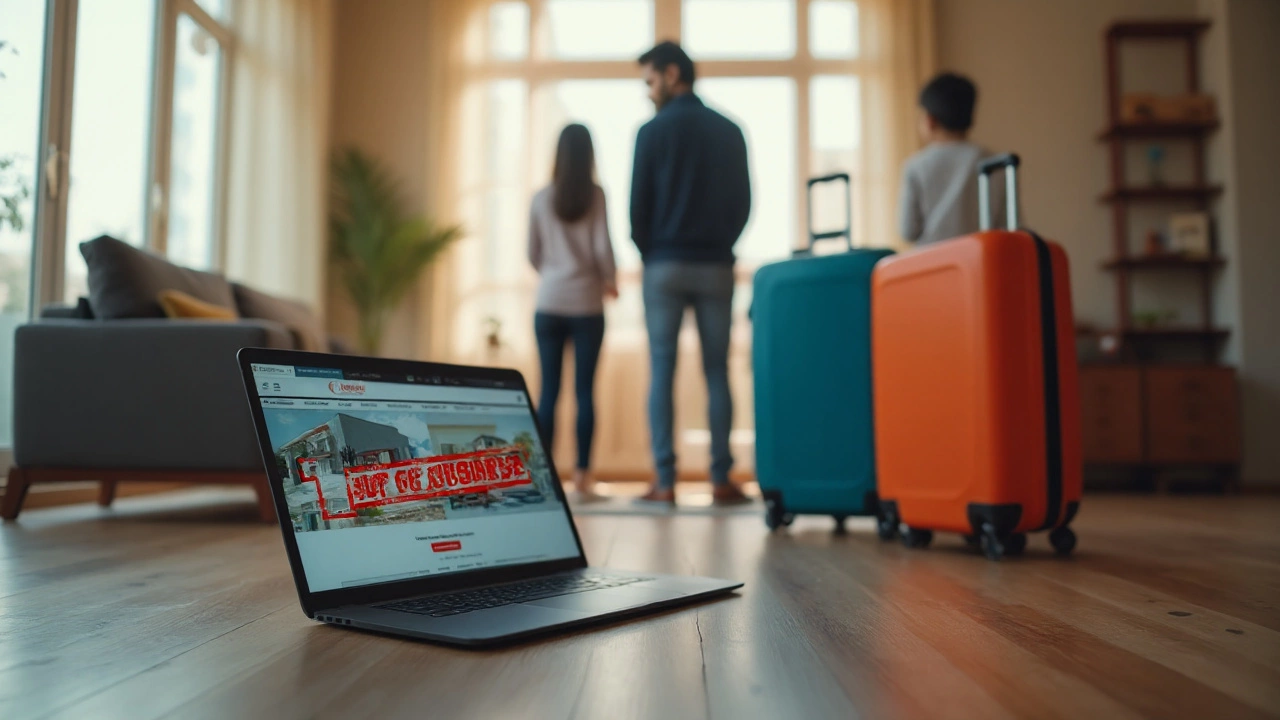Zillow’s Collapse: What Really Caused the Real Estate Giant to Fail?

Aug, 3 2025
Ask anyone in Los Angeles about finding an apartment in 2021, and you'll hear two names: Craigslist, and Zillow. Zillow wasn’t just a site—it was baked into your phone, your life, your search for something better. But even giants can fall, and Zillow’s sudden flameout felt like the Big One finally hitting the property world. People everywhere still shake their heads: how did a company with billions in revenue, a famous Zestimate algorithm, and brand loyalty deeper than avocado toast mess it up so spectacularly?
The Rise and Perilous Gamble of Zillow’s iBuying Program
Zillow wasn’t content to just show you listings. By 2018, they wanted to buy your home outright and flip it—a business called “iBuying.” This move wasn’t just bold, it was banking on big data’s promise: if the Zestimate could value your home, surely Zillow could buy at the right price, spruce the place up, and sell it for a sweet margin. This is when real estate moved from spreadsheets and relationships into the hands of algorithms and armies of contractors.
For a while, the numbers dazzled. In hot markets—think Phoenix, Dallas, Atlanta—Zillow Offers was buying thousands of homes, sometimes making it look as simple as ordering takeout. But the cracks started fast. The U.S. real estate market isn’t like trading Tesla stock. Homes aren’t uniform. They each creak and groan in their own adorable way. The Zestimate was never perfect—sometimes off by tens of thousands of dollars. On a few one-off listings, mistakes don’t hurt. But when you have thousands of houses on your books, a single percentage point off in your pricing model becomes a tidal wave.
By late 2021, the alarms were deafening. Zillow disclosed losing more than $500 million in a few months, despite rabid home demand. Why? Their algorithm had systematically overestimated prices in dozens of markets. When the housing market cooled, Zillow was suddenly sitting on a mountain of overvalued inventory. They didn’t just buy too high—they discovered the costs and headaches of residential renovation and flipping at scale were far nastier than fancy charts had suggested. A renovation in Atlanta isn’t the same as in Dallas. Labor shortages, backlogged appliance orders, sudden neighborhood declines—these aren’t things an algorithm easily forecasts. Flipping at scale made for punchy headlines, but in the end, it was a plain old expensive mess. Zillow shuttered Zillow Offers in November 2021, laying off thousands. The dream of a Zillow-owned home on every block was dead. And they admitted it: flipping homes was riskier and more unpredictable than they ever guessed.

The Hazards of Betting Too Much on Technology
We live in a world obsessed with big tech. Plug your phone into your Tesla, let Spotify DJ your life, trust Amazon to pick tomorrow’s outfit. But real estate—fitting a family into four walls—refuses to be an app. Zillow made a pretty wild assumption: that data could unseat decades of local insight, relationships, and boots-on-the-ground experience. Their failure didn’t just cost the company billions. It forced everyone to rethink a basic question: Can a computer truly price a home when values depend so much on quirks, neighbors, future development, and even the feeling you get when you step through the door?
Let’s get real: even the smartest algorithm isn’t walking down Maple Avenue with you and your grandma, listening to her stories about the yard. Zestimate looks neat when you're scrolling, but it never talked to the retired schoolteacher who knows every buyer within three blocks. Zillow’s failure wasn’t just about getting the numbers wrong; it was about missing the heart of real estate. Many saw algorithms replacing agents. Instead, they learned the opposite: People want local, personal knowledge, not just data glitz. You can see it everywhere now—after Zillow’s crash, Redfin scaled back its own iBuying, and Opendoor, the last big iBuyer standing, saw its shares nosedive and cut staff. If you’ve got skin in the real estate game, remember this: yes, use online tools and price checkers, but never swap them for a real conversation with someone who knows the block, the school, the market like the back of their hand.
The Zillow saga is also a warning to investors: don’t believe the hype if you aren’t ready to back it up with real-world logistics. Tech can make things easier to a point, but the bigger your tech-driven promises, the rougher your fall when reality bites back. Hundreds of employees lost their jobs, and Zillow’s stock tanked, erasing billions in market value. It’s a rough lesson: you can’t code your way out of market volatility or skip the grind of groundwork with a clever algorithm.

Lessons for Home Buyers, Sellers, and Real Estate Pros
If you’re looking to buy, sell, or invest in property, what do you take away from this whole mess? First, trust, but verify. An online estimate gives you an idea, not a guarantee. If you’re selling, don’t take the first, highest online offer as gospel. There’s always a story behind the number: maybe the walls need love, maybe the neighbor’s dogs bark all night (trust me, buyers care!). The biggest lesson? The best deal is often found face to face, with an agent or investor who knows your local scene.
Sellers in markets where iBuyers were ultra-active—like Phoenix and Las Vegas—saw temporary surges in prices and fierce bidding wars, sometimes over minor cosmetic improvements, as these companies competed with each other and local buyers. When Zillow and others pulled out, local prices stuttered and long-term owners got reminders that “easy money” doesn’t last. If you’re buying, keep your eyes open for neighborhoods that had a lot of iBuying—it can mean bargains or more lingering inventory as companies try to offload homes.
Agents, meanwhile, shouldn’t fear the end of their profession—if anything, Zillow’s implosion made them more important. Anyone can offer a Zestimate, but only you can sit at a kitchen table and map out a smart selling strategy tailored to today’s buyers. If you’re thinking about real estate as a tech investor? Look for startups blending smart software with in-person service, not just another app promising magic with machine learning.
On a practical note, if you ever get contacted by a company offering instant cash for your home, always read the fine print. These offers sometimes come with hidden fees, quick closing demands, or home condition caveats that could leave you with less than a traditional buyer’s offer. If you’re buying, and the home was recently owned and flipped by a big company, double-check permits, renovations, and work quality. Those companies had huge time pressure to flip thousands of homes, and not every contractor took the same care a long-time owner would.
The Zillow meltdown sent ripples through real estate, tech, and Wall Street. Their bold leap into iBuying was a high-stakes bet that technology alone could reshape a slow, deeply personal game. Turns out, homes aren’t just assets; they’re places people build lives, and getting their value right needs more than just an algorithm. Whether you’re hunting for a new place in Los Angeles or thinking about buying in Boise, remember: some things just can’t be automated. And if an online estimate feels too good to be true, it probably is.